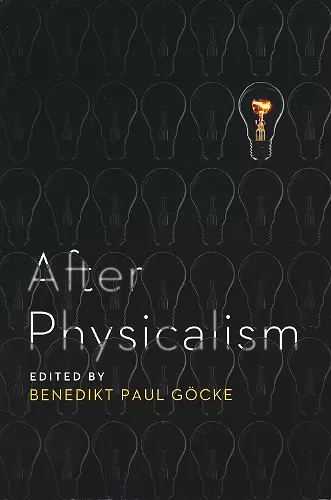After Physicalism
Challenging Physicalism in the Philosophy of Mind
Format:Paperback
Publisher:University of Notre Dame Press
Published:15th Jun '12
Currently unavailable, and unfortunately no date known when it will be back

This collection explores dualistic alternatives to physicalism, presenting philosophical arguments that challenge the conventional understanding of the mind in After Physicalism.
The contributors to After Physicalism present compelling alternatives to the physicalist perspective on the human mind, advocating for a dualistic approach. While physicalism has dominated contemporary discussions in the philosophy of mind, a growing contingent of philosophers argue that it is fundamentally flawed. They contend that physicalism cannot adequately account for mental phenomena, both ontologically and epistemologically, and that its efforts to translate subjective experiences into objective terms have consistently fallen short. This collection of essays challenges the reductive and naturalistic paradigms that have long prevailed in philosophical discourse.
The essays within After Physicalism engage deeply with a priori metaphysics, featuring contributions from notable thinkers such as Uwe Meixner, E. J. Lowe, John Foster, Alvin Plantinga, and Richard Swinburne. These authors explore various avenues to substantiate the truth of dualism, offering insights into the relationship between physicalism and dualism. Other contributors, like William Hasker, A. D. Smith, and Howard Robinson, delve into the complexities of this relationship, while Benedikt Paul Göcke and Stephen Priest challenge conventional notions of identity and existence.
In the concluding essay, Thomas Schärtl addresses the limitations of dualism, particularly through the lens of resurrection. By including two foundational essays by Plantinga and Swinburne, After Physicalism not only highlights the most recent advancements in dualistic philosophy but also serves as a comprehensive resource for those interested in the ongoing debate surrounding the nature of the mind and consciousness.
“This volume contains much interesting material, and it is important to examine and carefully evaluate both the problems that physicalism has as well as the prospects of rival positions. . . . This volume certainly constitutes an important contribution to the decade.” —Mind
“Göcke has assembled a collection of 11 essays—9 of which are here printed for the first time—that usefully showcase the rich options available to readers in attempting to understand the mind outside a physicalistic framework. . . . Although different readers likely will gravitate to different essays, the collection as a whole offers much of interest to anyone grappling with questions about the nature of the mental.” —Choice
"This is a remarkable book, which can be used as a textbook in philosophy of mind as well as in philosophy of religion courses, and which also opens up the debate in an original way among colleagues at an advanced level." —Fergus Kerr, University of Edinburgh
"I found this to be an interesting collection of articles on a very significant topic. Benedikt Paul Göcke is correct to affirm that contemporary physicalism about human persons is in something of a crisis mode, in which most philosophers are sure that some form of physicalism must be true, but no one has a convincing account of how physicalism could be true. The time is right for a new look at dualism, and, for the most part, this book delivers just that." —C. Stephen Evans, Baylor University
"This is a timely and important book. Conventional, mechanistic physicalism clearly suffers from major difficulties, not the least of which are the incompleteness of modern physics and the inability to account for qualitative experience and consciousness. The time is right to examine our other options: dualism, pluralism, and alternate forms of monism. There is indeed 'life after physicalism,' and this book paves the way." —David Skrbina, University of Michigan–Dearborn
ISBN: 9780268030001
Dimensions: 229mm x 152mm x 20mm
Weight: 503g
384 pages